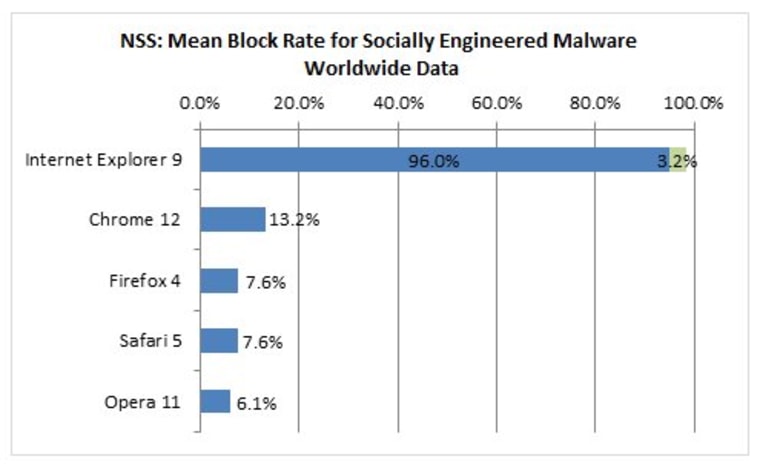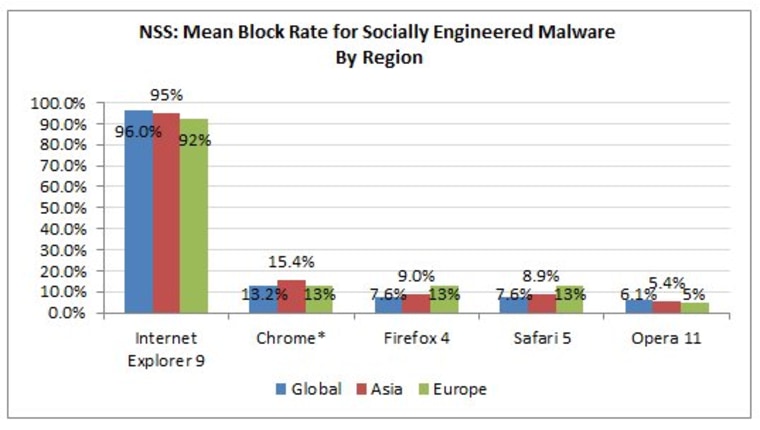
When it comes to blocking malware, Microsoft's Internet Explorer 9 seems to come out on top, by leaps and bounds, over other browsers.
Tests by NSS Labs to "examine the ability of five different web browsers to protect users from socially-engineered malware" showed that IE9 was able to block this kind of threat 99 percent of the time, beating out Apple Safari 5, Google Chrome 12, Mozilla Firefox 4 and Opera 11.
(Msnbc.com is a joint venture of Microsoft and NBC Universal.)
The closest another Web browser got to that blocking-the-bad stuff rate was Chrome, at a very distant 13.2 percent. At the low end of the blockers was Opera, with a 6.1 percent rate.
NSS also tested socially engineered malware targeted at users in Asia Pacific and in Europe and found IE9 again seemed to blow the others away, with a 95 percent mean block rate in Asia and 92 percent in Europe. Chrome was again second, with a 15.4 percent block rate in Asia being its highest score. Opera again finished last.

NSS gave particular props to IE9's SmartScreen technology, which is designed to stop the attacks before they can infiltrate the browser. SmartScreen can do one of three actions: Allow direct access to the website (as long as it "has high traffic and no history of hosting any phishing scams or malware"), block the link or directs the user to a page with more information, allowing them the choice of whether to proceed.
While these findings might seem to give a boost to IE9, which had 2.3 million downloads in the first 24 hours of its March release, its impact on the general population may be miniscule given how popular the other browsers are. Mozilla Firefox 4, for instance, already quickly surpassed IE9's first day downloads, with 7.1 million, only about a week after IE9's debut.
Citing HitsLink, The Next Web put this in context by revealing IE9 only inhabits 6.8 percent of the total browser market. On the other hand, its predecessor, IE8, controls the Web browser market with a 29.23 percent share. (Chrome has almost 11.2 percent and Firefox 5.0 has 10.4 percent.)
Nevertheless, the Exploring IE blog was quick to laud the findings, adding that since another NSS report that came out in October, "the average time taken by SmartScreen filter to block a threat has gotten 28 percent faster — and if Application Reputation is considered, then the average time has improved by 85 perecent. Not only has the effectiveness of the technology improved, but so has the speed at which it is able to identify socially engineered malware."
More stories:
- Browser wars update: Firefox 4 slaughtering Internet Explorer 9
- Internet Explorer 9 downloads: 2.3 million in first 24 hours
- Creepy Android malware records your phone calls
- Google now checks your computer for malware
- Report: Dangerous links will affect 3 of 10 smartphone users
Check out Technolog on Facebook, and on Twitter, follow Athima Chansanchai, who is also trying to keep her head above water in the Google+ stream.